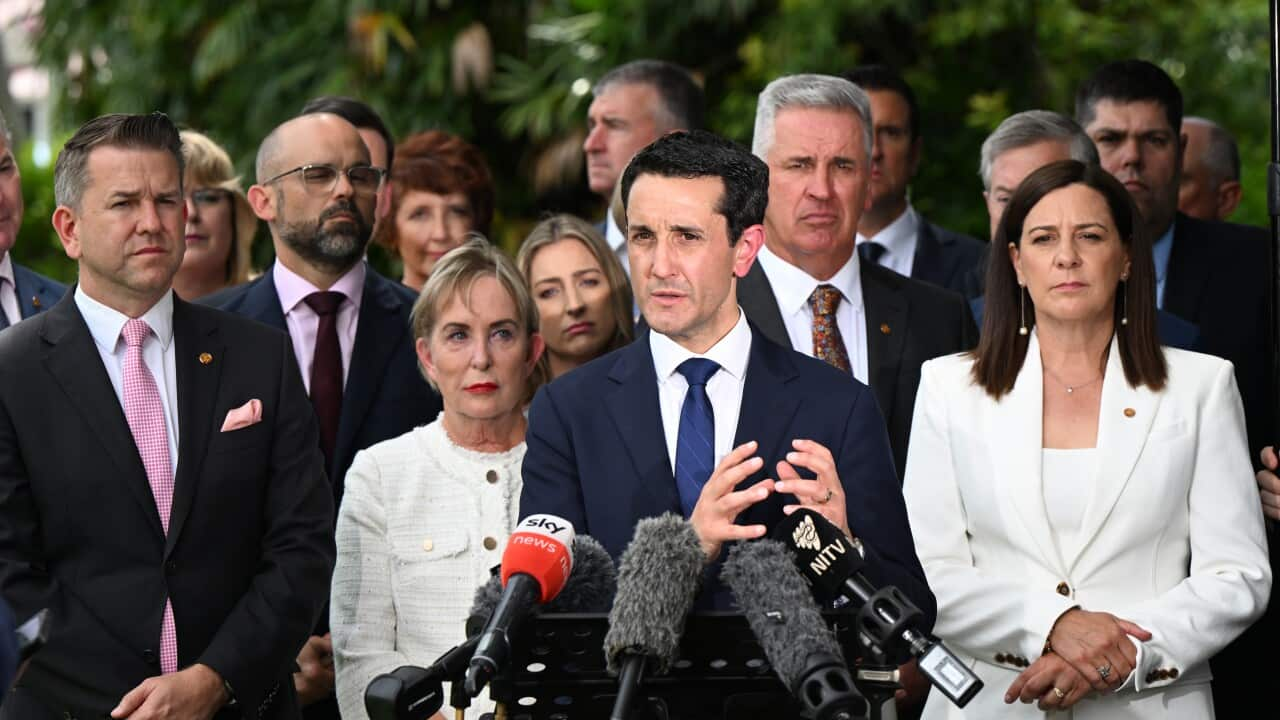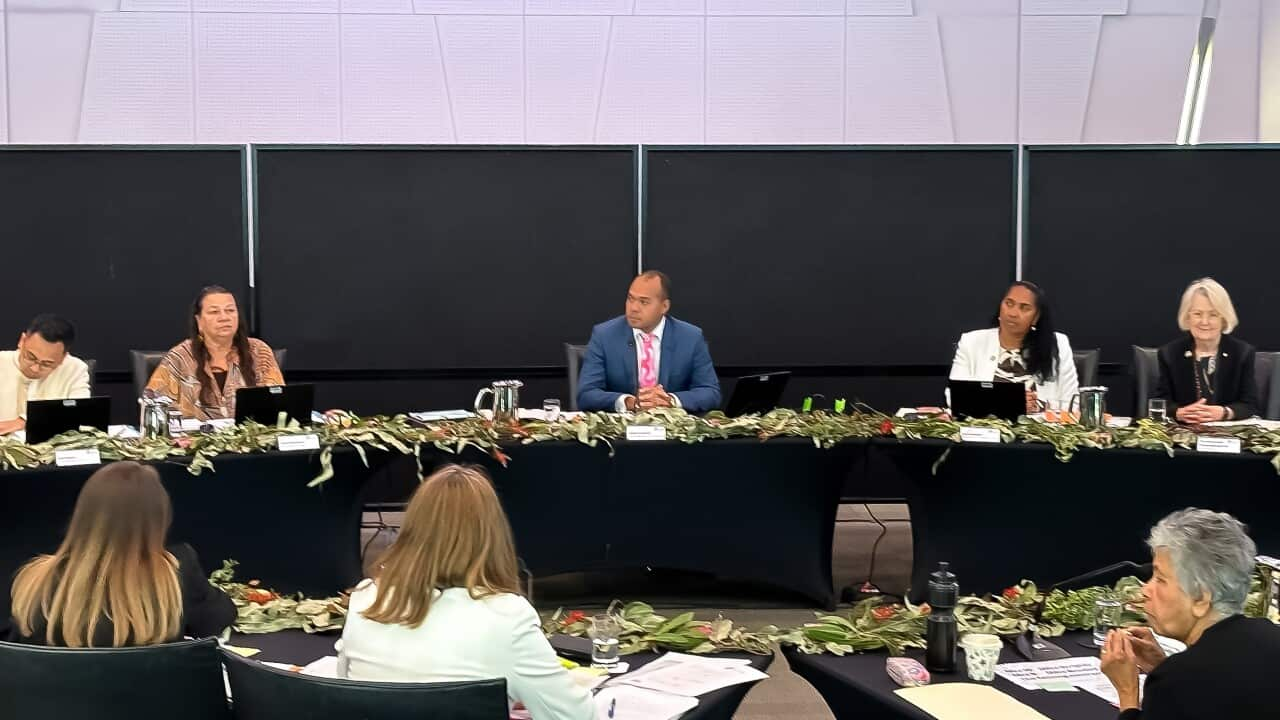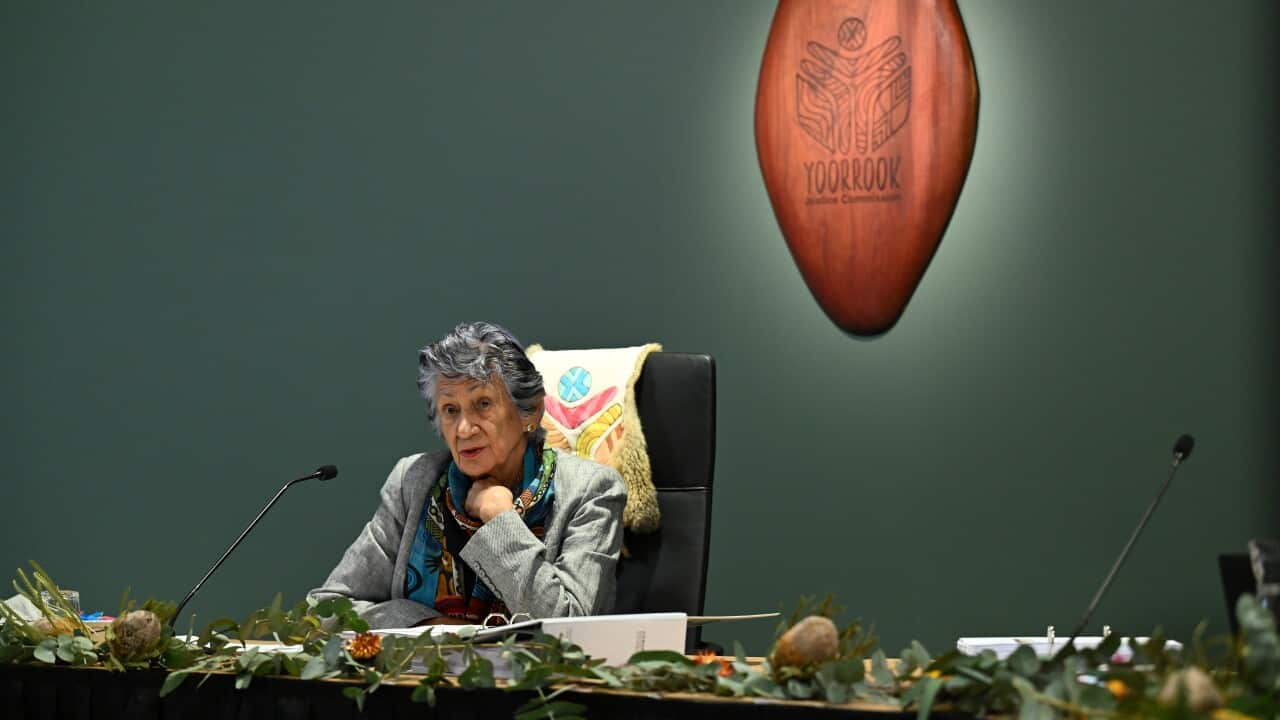First Nations advocates are urging new Queensland Premier David Crisafulli to reconsider his decision to abolish the Truth-telling and Healing Inquiry, saying everybody benefits from the truth and no-one has anything to fear.
Mr Crisafulli – who last year said Queenslanders should embrace truth-telling – announced through the media last week that he was scrapping the inquiry, without first communicating his decision to the inquiry's chair, Joshua Creamer.
In the days since, a raft of First Nations, human rights, educational and legal organisations and people have expressed their dismay and asked the premier to reconsider, with many requesting he meet with them.
Psychologist Clinton Schultz, director of First Nations strategy at the Black Dog Institute, told NITV that the premier’s decision felt like an immediate attack on Indigenous people in Queensland.
“The perception that is left with us is that our social and emotional wellbeing, for us now and our children, our children's children into the future, are of less relevance and less importance to the government,” he said.
“Truth-telling is more than just about recounting history, the whole process is about helping us to heal the wounds from the past and to look at how we can build a stronger future based on an accepted truth.
READ MORE

Explainer: the Stolen Generations
“By scrapping the Truth-telling and Healing Commission, the government has shut down a pathway to healing that has only just recently been opened … and that's leaving many people in in our communities feeling unheard, unvalued and it's deeply affecting the social and emotional wellbeing of many mob around the state and, no doubt, around the country.”
Come and meet with Stolen Generations
Professor Steve Larkin, chair of Stolen Generations organisation the Healing Foundation, said the decision was deeply hurtful and detrimental to ageing Stolen Generations survivors.
“It will add to their pain and suffering,” he said.
“As far as we are aware the Premier has not provided any alternative to the inquiry; denying survivors the opportunity to share their stories as part of their individual and community healing is an act of divisiveness in itself.
“Meet with us and with Stolen Generations survivors to understand why truth telling and healing is important, not just for Aboriginal and Torres Strait Islander peoples, but for all Australians."
Aboriginal and Torres Strait Islander Social Justice Commissioner Katie Kiss said the LNP's decision to abolish the inquiry and repeal its Path to Treaty Act marks a major step backwards for First Nations rights.
Commissioner Kiss, a proud Kaanju and Biri/Widi woman who grew up in Rockhampton on the lands of the Darumbal people, was previously the executive director of the Interim Truth and Treaty Body, supporting Queensland’s Path to Treaty.
“The decision to scrap the inquiry, denying our First Nations people a chance to share their stories to help accurately convey our state’s history, is extremely disrespectful and harmful,” she said.
“It is disrespectful to communities, but also to the many people who put in years of work to make this inquiry happen. This includes the contributions of everyday Queenslanders – Indigenous and non-Indigenous – who provided invaluable input to support truth, justice and healing."
The inaugural truth-telling hearings of the inquiry in September showed the enormous contribution that this process can make to public understanding of the treatment of Aboriginal and Torres Strait Islander peoples in Queensland, Commissioner Kiss said.
"These hearings showed the immense benefits truth-telling has for everyone," she said.
Commissioner Kiss has written to Premier Crisafulli, urging him to reconsider his decision and offering to work collaboratively with his government.
“Now more than ever, we need policies that promote reconciliation and unity – not division and discord," she said.
"First Nations Queenslanders deserve and need to have their rights upheld and their stories heard.”
Kate Marchesi, director of In-House Legal at the Truth-telling and Healing Inquiry, took the unusual step of sharing her personal views.
"A decision to shut down an independent inquiry tasked with holding government to account should concern all of us and especially those of us in our legal community," she wrote in a statement.
"As Premier Crisafulli said last year in support of the Path to Treaty Act, ‘these issues have been talked about in this parliament, written about in reports, investigated in various commissions - and nothing changes. Why? Because no one is being held accountable'."
Ms Marchese said all Queenslanders have a stake in the truth-telling process.
"My family is part of the story of Barcaldine, and the story of the cane-cutting Italian immigrants of North Queensland," she said.
"Even in my short time working in this inquiry, I’ve connected with Aboriginal people who I never knew were part of my family’s stories.
"We grew up in the same town, but in different worlds.
"Ending this inquiry early will be a missed opportunity to authoritatively capture that oral history for our future before it’s lost."
The Aboriginal and Torres Strait Islander Legal Service of Queensland also voiced their disappointment in a statement.
"Sadly, politics has once again been used to undermine a genuine opportunity to learn the truth of the past and progress toward a better future together," they said.
"This is a grim indication of the type of engagement our people can expect for the next four years."
The union representing teachers and support staff in Queensland and Northern Territory non-government schools also condemned the Government's actions.
Independent Education Union Queensland and Northern Territory branch secretary Terry Burke said the decision was a step backwards from achieving meaningful reconciliation with First Nations peoples.
“It is an utterly shameful decision to halt the inquiry and devastating for First Nations communities to have this long-awaited opportunity for truth, justice and healing revoked,” he said.
“First Nations Peoples are yet again having their voices silenced and histories denied.
“If you take issue with the truth being told, you have a serious problem.”
The decision is at odds with the recommendations in a report published last week by the Australian Human Rights Commission, which called on governments to recognise the devastating impacts of systemic racism on First Nations Peoples and take urgent access to address it.
Less than eight weeks ago, Queensland Council of Social Services chief executive Aimee McVeigh was among the thousands of people who attended the Ceremonial Hearing, which officially commenced the Inquiry.
“The inquiry is of historic importance to Queenslanders, giving us a new opportunity to listen, for First Nations Queenslanders to be heard and for all of us to be part of a healing process,” she said.
When the Path to Treaty Bill was before the Queensland Parliament, spoke in favour of it, saying it was an opportunity he believed Queensland should embrace wholeheartedly.
"I believe in truth-telling and, to me, that means telling it like it is ... ," he said in May 2023, going on to say that the entrenched disadvantage faced by First Nations people continued because no-one was being held accountable.
"Path to Treaty offers an opportunity to address this, a fork in the road.
"Down one well-travelled path lies a discussion had for political purposes.
"It talks a big game but achieves little for Aboriginal and Torres Strait Islander people – a path where political battlelines are drawn but ultimately ends with a decade wasted and no progress made.
"Down the other path is a treaty."
The Premier's office did not respond to emailed questions or requests for comment by the time of publication.



















